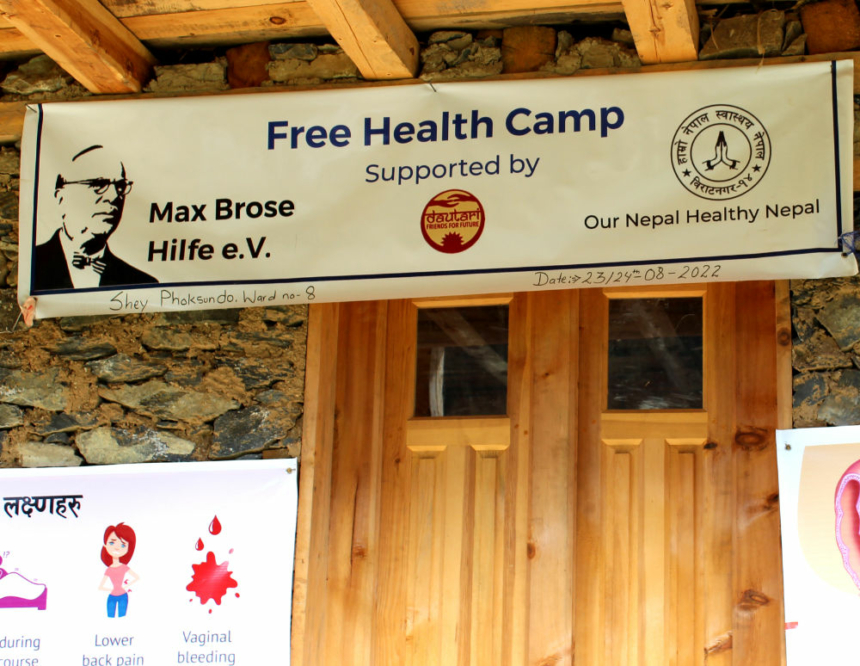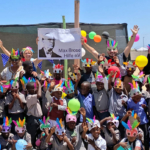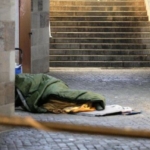Nepal: Free Health Camp
The organisation OUR NEPAL HEALTHY NEPAL put together a team of doctors and nurses who set out on the arduous journey to the mountain villages, which otherwise receive no medical care whatsoever. The aim was to provide advice, but to identify serious illnesses. On the spot, outpatient treatments were carried out on 6 days, but also inpatient measures were brought on the (very long) way. The Max-Brose-Hilfe financed the campaign.
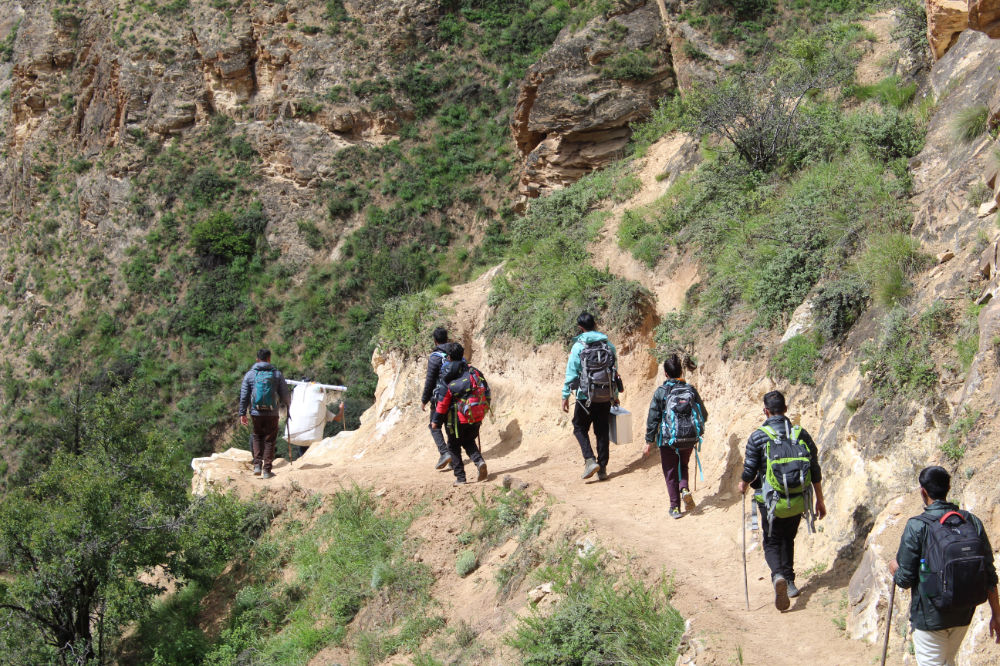
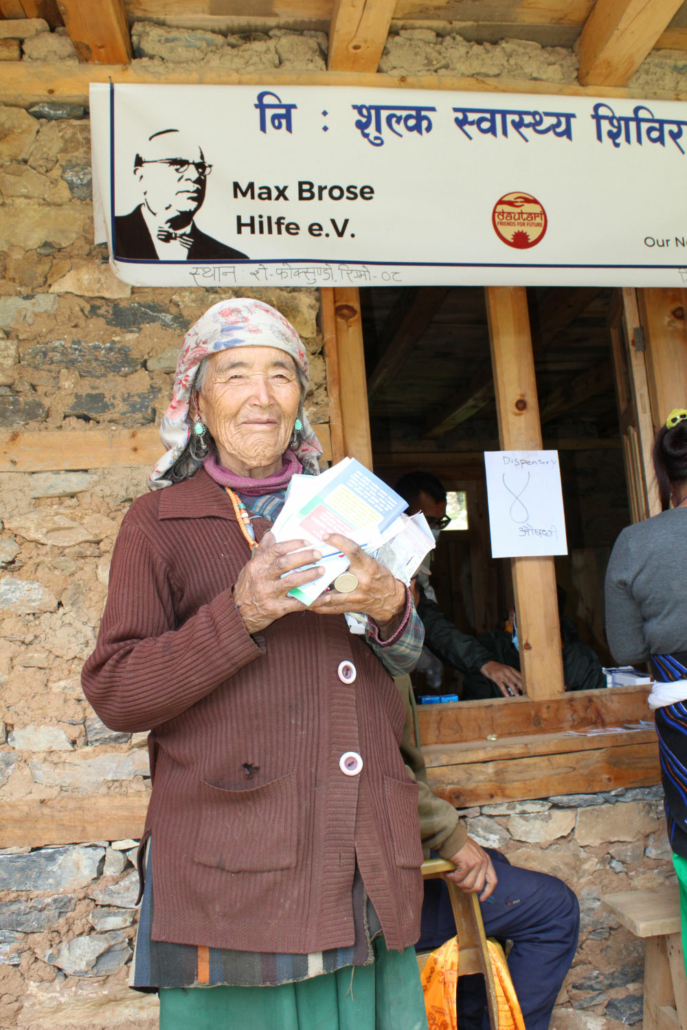
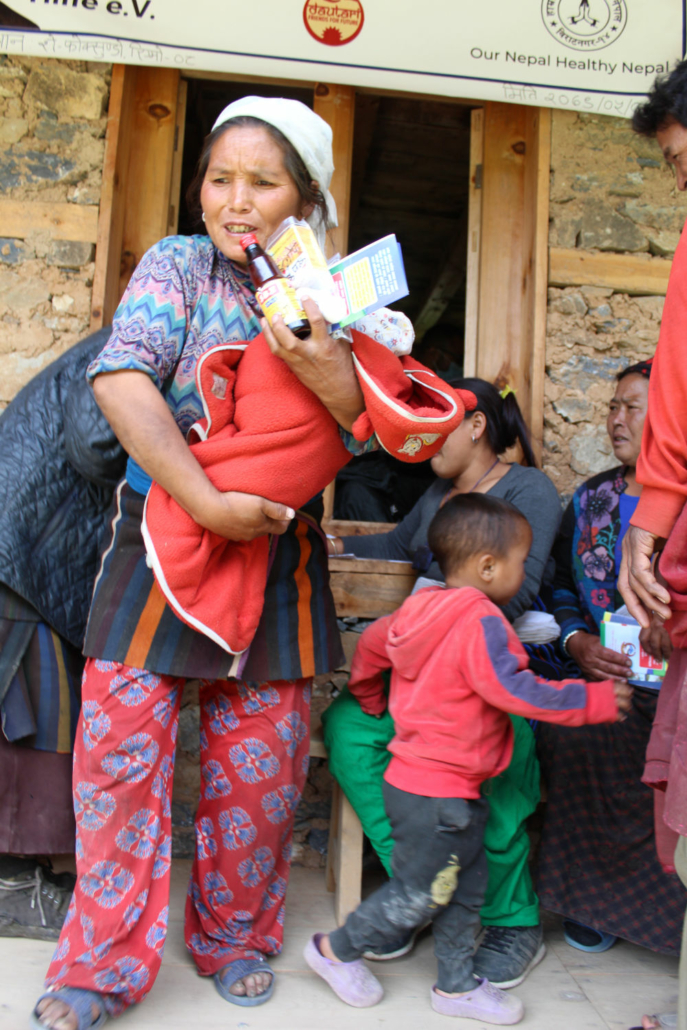
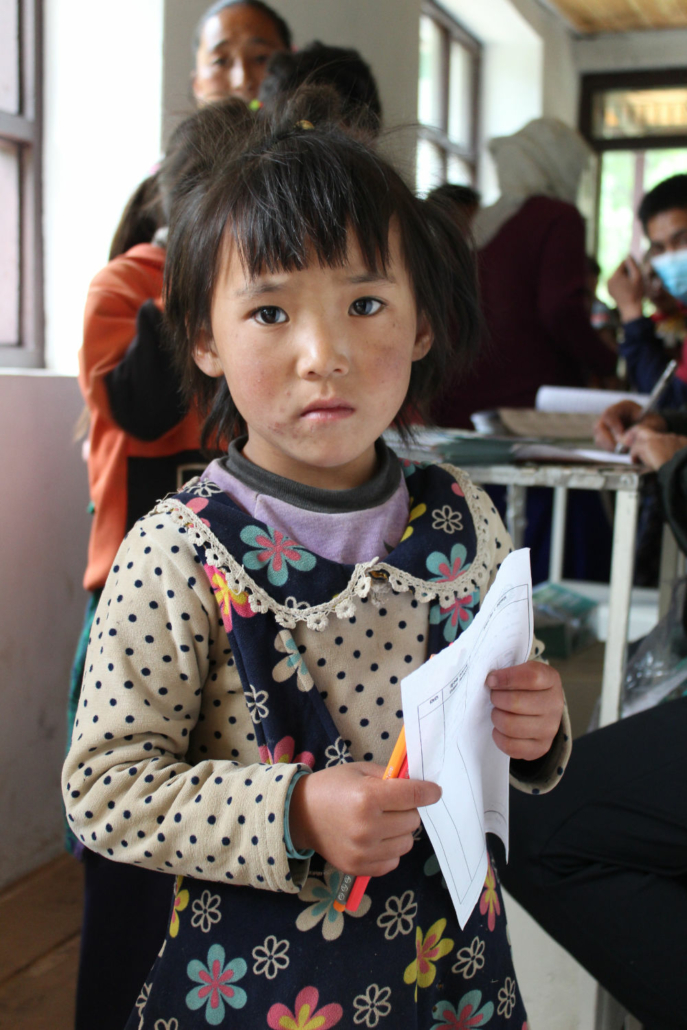
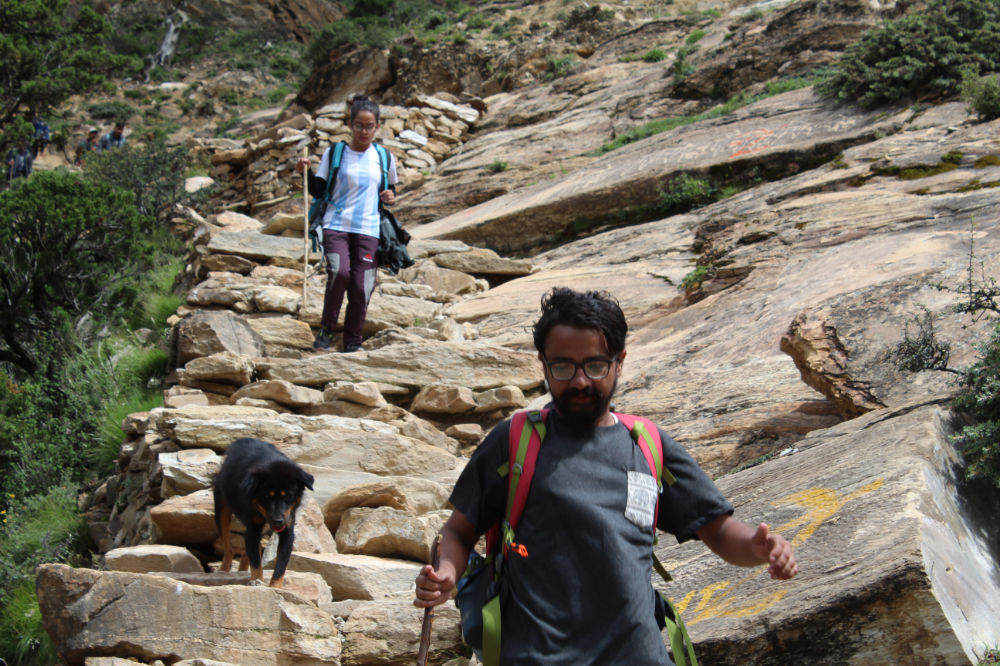
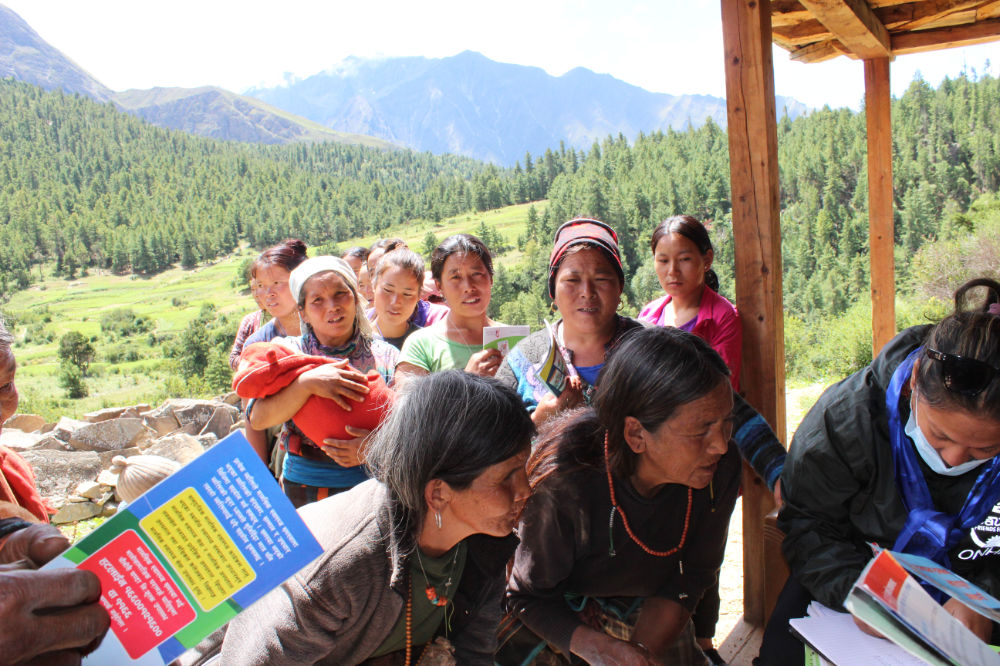
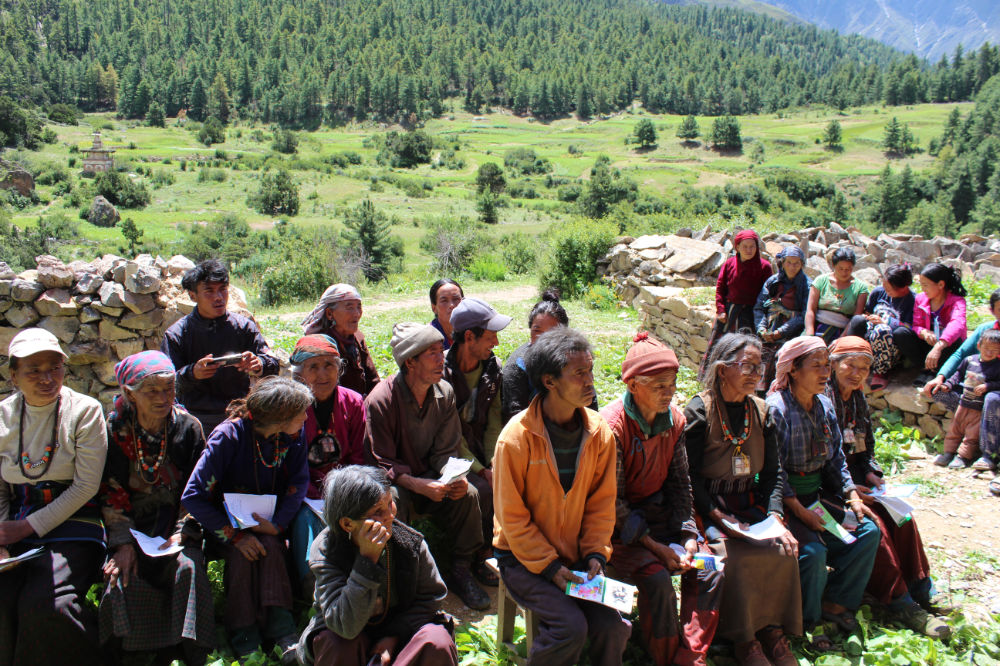
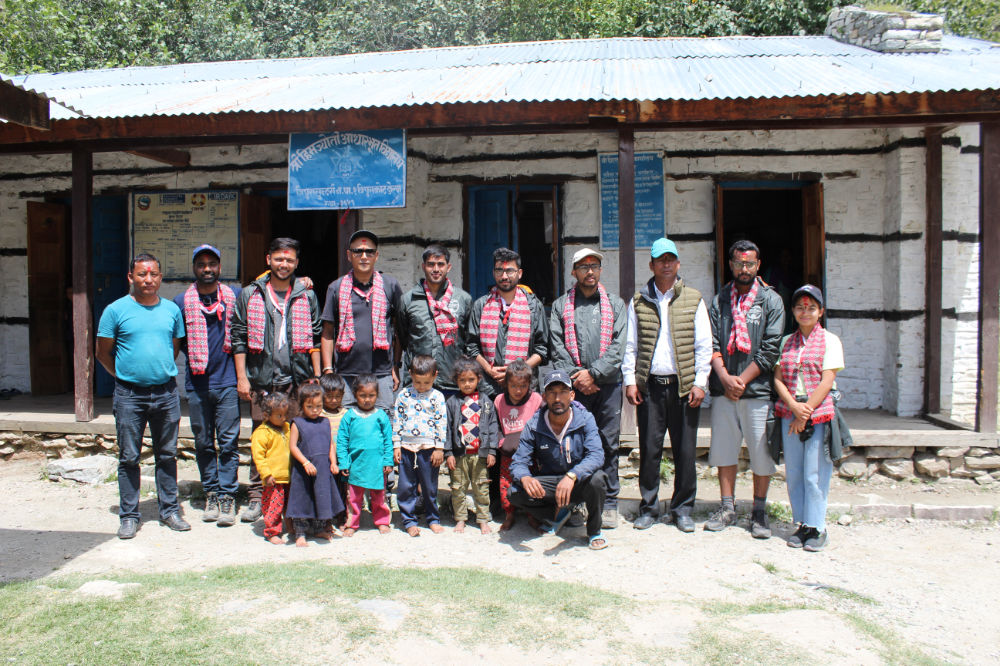
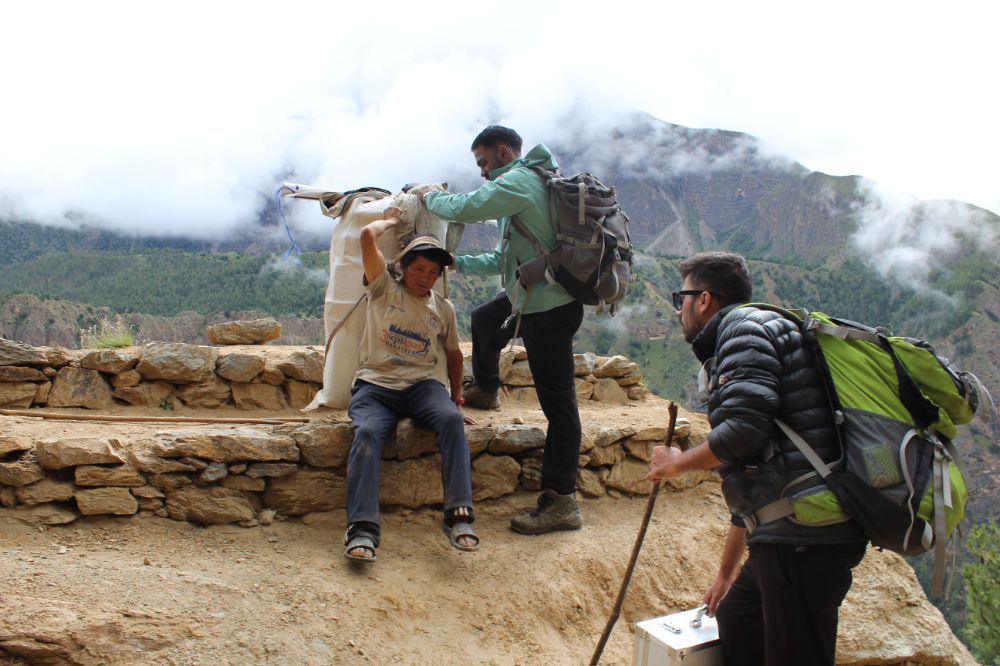
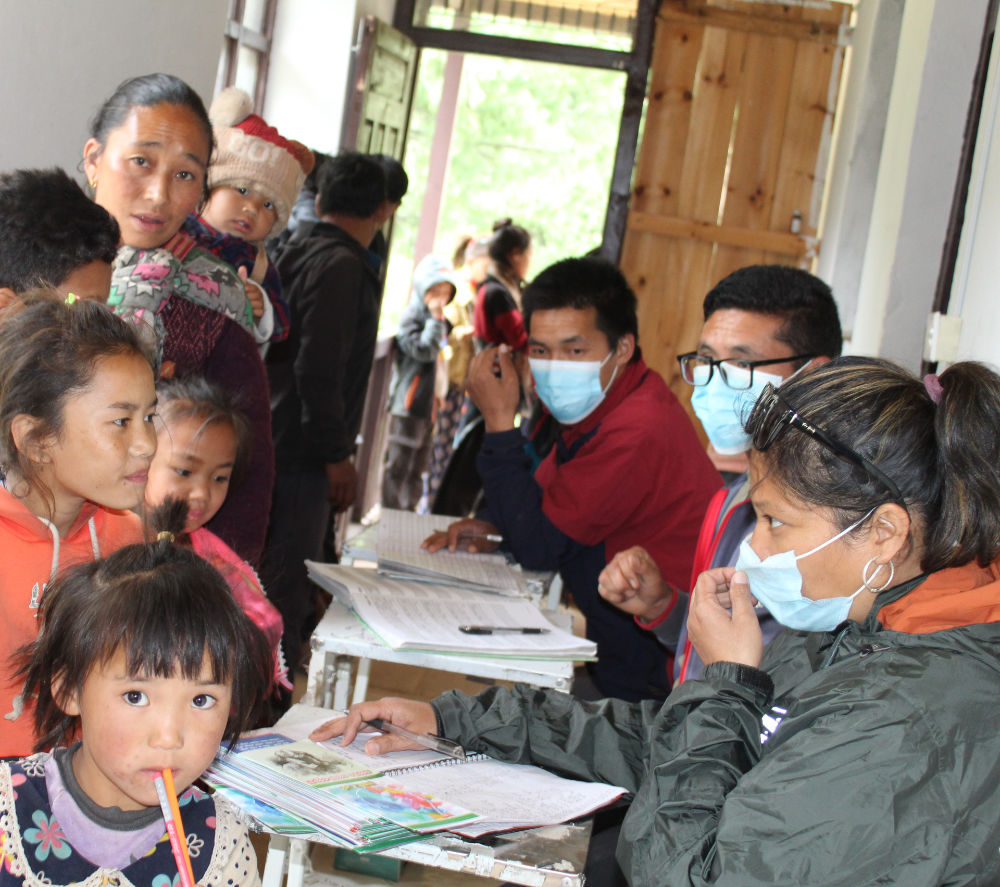
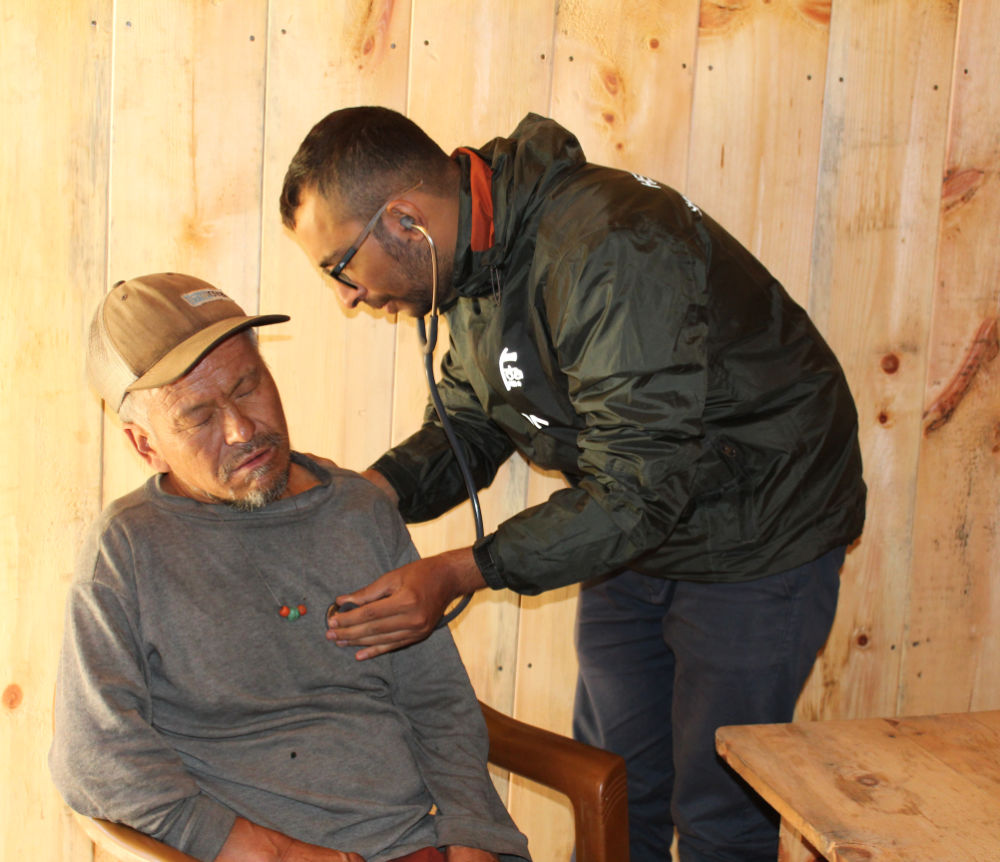
16 October, 2022
This is Manisha Koirala, a registered nurse from Nepal and I am currently working in Bir Hospital. I am grateful that i got an opportunity to serve (as a female health personnel) in the health camp and i am even more glad that i have been asked to submit the report from my side to Dautari. Being the only female health professionel in the camp gave me a different kind of experience and this report sums up all my experience regarding the health camp.
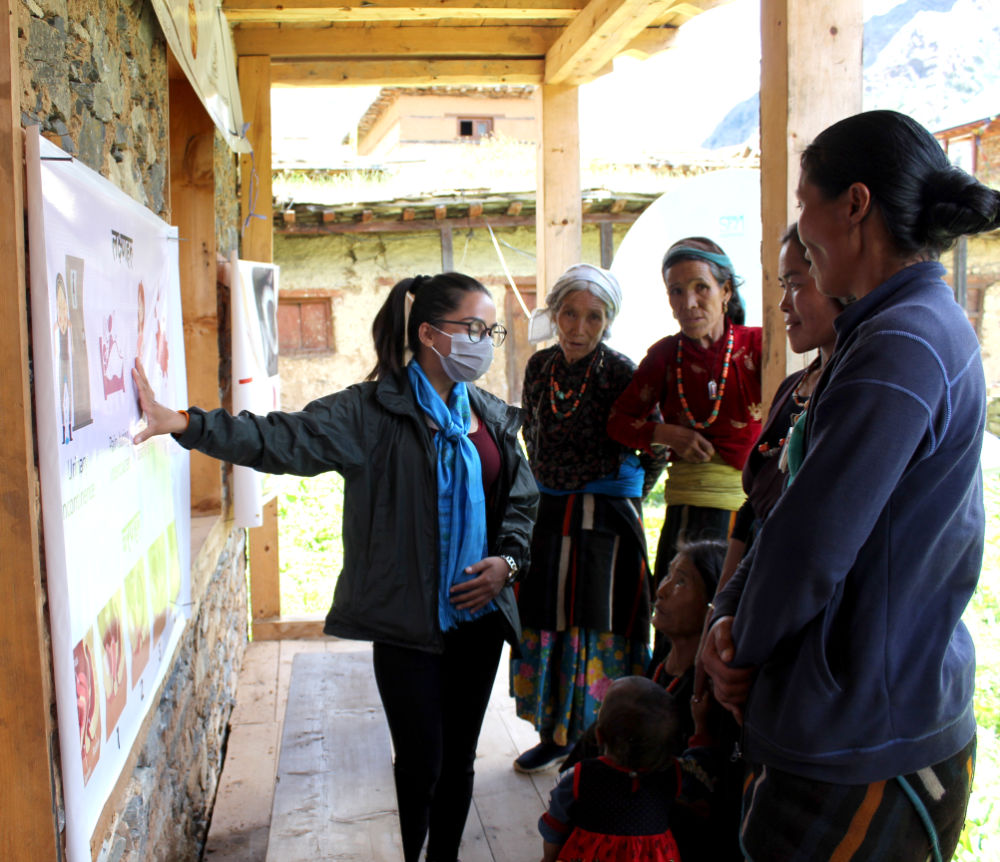
Health camps are one of the frequently used methods of reaching the unreached from the advanced health service in the developing world, where people get health consultation along with the distribution of drugs at local level. People are becoming health conscious nowadays and desiring to become healthy too. However due to the lack of economic level, lack of knowledge, difficult terrains and lack of proper transport, sick population cannot visit health institution for the treatment. This goes with most of the upper hilly-mountainous regions of Nepal, Dolpa being one of them. According to the need of the people, Dr. Utsav Yadav, President of Our Nepal Healthy Nepal selected the camp venue and took this great initiative. When I was called to be a part of the camp, I was so excited for this great learning opportunity, and of course, for the fun in exploring the beauty of Nepal too. Team for this camp included 1 MDGP doctor, 6 medical officers, 1 registered nurse (me) and 2 volunteers from Dautari. The camp was conducted for the total duration of 2 days, but the travel made the journey of around 10 days. Hard work, dedication and enthusiasm of not only the appointed team but also the ward chief and local people of Shey Phoksundo Rural Municipality-8 made it easier for us to set the camp at good initiation and smooth continuation. The motive of our camp was not only to identify and diagnose the acute treatable cases or refer the chronic conditions, but also to counsel people about their health condition and the measures they are supposed to take to avoid future health related disastrous outcomes. We also tried our best to create health awareness in people there. We all know that being a female in rural areas of Nepal is not an easy task, they have to go through a lot. Since the status of female in our country is poor and they are not heard by the people, they hesitate to talk about their problems and their voices are suppressed as well. Due to this, females do not have that urge to go for check up until they fall severely ill. Hence, the number of female population suffering from gyenecological problems is increasing in rural areas of Nepal, one being Dolpa. Therefore, me being female, I conducted the awareness and counselling sessions on the preventive aspects of uterine prolapse and it’s early signs and symptoms among the female group.
In the camp and during the journey, following points specific on women came out for the consideration:
- Women there are as equally concerned about their health and condition as men.
- Most of the women are engaged in farming, using their products (designated woollen clothes) and sell in the market, and also in the homestay business, leading them to the path of financial independence.
- Women are also involved as Female Community Health Volunteers (FCHWs), giving them good platform and opportunities to utilize their knowledge, and also to raise their concerns and be the voices of many other women too
- From the place where we conducted our first health camp, it takes about 6 hours minimum to reach a health post and that too is complicated by the several hilly passages and small narrow trails that have to be crossed along with. That is also why women living up there will only visit health institutions when they fall ill severely.
- Though we conducted our first health camp in school, we came to know that the school remains almost always closed as there’s only one teacher, no enough desk/bench and appropriate school requirements. Almost all the children go to another school about 6 hours down the prior one, near the health post and stay in a school hostel there. Number of girls was similar to boys.
Summing up, the camp was quite effective. Personally, for me it was a very good learning experience. Also this trip gave me a lifetime experience of my first ever trekking worth cherishing. I believe I must thank Dr. Utsav Yadav for having me in this wonderful journey, Dautari and Max Brose for providing support for this camp and the amazing health professional team who made this journey even more beautiful.
R. N. Manisha Koirala

